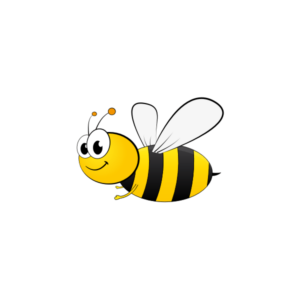Tag: bees
What’s the Buzz About?
by Kaelin Ferland '23 on February 16, 2023
Opinion Staff
Eco Updates
USDA Approves First Vaccine for Bees
Recently, the United States Department of Agriculture approved a vaccine for honeybees to protect these crucial pollinators against American Foulbrood Disease, a highly contagious disease that infects bee larvae and pupae. AFB can spread quickly within honeybee colonies, as well as to other hives, making it particularly dangerous.
Bees have great ecological importance. Without bees, flowering plants and trees wouldn’t be pollinated, causing sharp declines in global biodiversity. Three-quarters of the plants on our planet are flowering species, meaning that without bees, we would lose 75 percent of the world’s plants. Bees are also vital for food production, pollinating around 35 percent of the food we eat. If bees disappeared or went extinct, we would be unable to survive.
AFB affects honeybee colonies via spores. If these bacterial spores enter hives and infect larvae and pupae, the colony could collapse within a matter of weeks. When bees feed larvae food contaminated by these spores, the disease is transmitted to the developing bees. Once consumed, the spores multiply within the larvae and kill them. During development, larvae inhabit honeycomb cells in the hive. When an infected larva dies, it needs to be cleaned out by worker bees. The cleaning process causes the release of more spores, infecting and killing countless other larvae in the hive.
How will the vaccine be administered to these tiny insects? Instead of injecting the vaccines into bees using miniature syringes, the vaccine will be incorporated into the queen bee’s food. Honeybees have a unique method of deciding which female becomes the queen. Multiple female larvae will be fed “royal jelly,” a nutrient-rich substance that causes ovary formation. This ensures that the queen bee is the only female that can reproduce in the colony. Whichever female larva emerges first becomes the queen and consumes the female larvae that have yet to hatch.
Bee biology differs from that of most organisms because the queen bee is the only one to reproduce in the colony. This means that all of the bees in the hive are genetically related. When the queen bee ingests the AFB vaccine it will enter her ovaries and will be passed onto her offspring. Thus, the vaccine will only need to be administered to the queen in new colonies.
Recent reports have stated that over the past 25 years, the Colorado honeybee population has decreased by over 72 percent. According to a study conducted by Bee Informed and beekeepers across the US, from April 2020 to April 2021, 45.5 percent of honeybee colonies across the country were lost. These declines are mainly due to climate change, habitat loss, and fragmentation, pesticides, and parasites; however, these statistics could in part be linked to AFB, which is why this new vaccine is so important. Additionally, the vaccine could pave the way for further research into different bee illnesses to see if we can develop more vaccines for other threatening diseases. In the meantime, while AFB continues to have a devastating effect on honeybee colonies, this vaccine will be essential in helping to preserve arguably the most important species on the planet.
Yellow Jacket
by Kate Ward '23 on December 8, 2022
Portfolio Co-Editor
Christmas

I saw you on my walk today. I was listening to some Christmas song and wishing that the drizzle was snow. You were huddled in a crescent moon on a concrete step; your antennae wilted like the flowers you flew past in favor of stinging my arm. Normally when I see you like this it is early November, not a few days after Thanksgiving. The cold seeped into your small yellow and black striped body, and you grew tired. Was the concrete a pillow in your eyes? Was it a safe resting place? Or did gravity and frigid temperatures yank you down just inches from your hive?
You know, you stung me three times when I was in elementary school, and I hated you. I took every opportunity to step on you and the rest of your species when you were crawling around, wounded. I hated you, yet…there was a heavy sadness knowing that you wouldn’t return home. You wouldn’t continue to fly around and harass everyone on a hot summer day. I’m glad the cold is what took you away, the most natural way of doing things, rather than ripping out your insides and leaving your poison in my body.
I hope the snowfall this season allows for more of your comrades to drift into a cold peace. I hope that people realize you take care of our environment like honey bees, you take care of pests, and you deliver karma to those who need it. I think if you hadn’t stung me, I wouldn’t be thinking about you in this way. Maybe I deserved a little karma, a little wake-up call. I think that wake-up call gave me the room to think about you now with a little more compassion, and I think that’s what I needed. I think that’s what everyone needs. Thank you.
